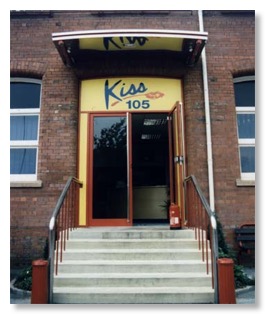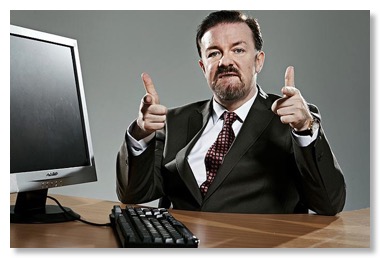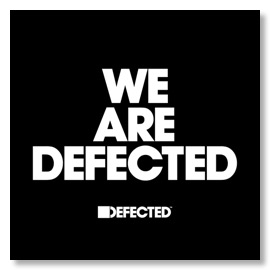PODCASTS WILL BE THE SAVIOUR OF RADIO. BUT DON’T CALL THEM PODCASTS.

In 1997 Kiss 105 started their test transmissions across Yorkshire. 24 hours a day of classic New York disco, unreleased white-label house music from Berlin, early drum & bass and trance, hip hop and soul. As a 15 year old normal kid at a normal school in a normal, northern, suburban town, the music that suddenly filled my bedroom was utterly mind blowing. Like aliens had landed in Leeds and brought with them a bag of music from outer space. A proper life-changing moment for a teenager, and after much hard work, persistence (and lots of luck), I ended up joining the station as a tech op, and going on to forge a career on air. I’ve spent my entire working life living and breathing music radio, and have always been a die-hard defender of the medium.
Once your contract ends where are you going to go? With industry consolidation meaning smaller stations and groups have been hoovered up into a handful of radio giants, there’s increasingly only a few very powerful people to work for. This can often mean presenters and producers have to bite their tongue, stifle their more outlandish ideas, and be super careful not to take any risks.
Toe the line or jeopardise your next invoice.
You might argue that it’s no different to any other line of work - if you’re employed by McDonalds you can’t just start squirting your own home made sauce into the burgers because you think it tastes better. A self-employed plumber can’t go rogue and build a scale model of the Trevi fountain when the customer asked for a new shower fitting.

However being a broadcaster, a presenter, or (at the risk of sounding like David Brent) an “entertainer” is different. It’s our jobs to push things a little further, experiment, say something to make them laugh, or cry, or play them something they’ve never heard before that makes them bust a move in the kitchen while nobody is watching.
Of course there is still some amazing stuff on traditional radio - just this morning I drove around the ring road 3 times on my way into work so I could hear all of Charlie Brooker on Desert Island Discs. Kiss has just launched 2 new channels including one dedicated to grime, Radio 1 still engages a young audience whilst informing and covering important social issues, and Capital is able to sell out Wembley Stadium in an instant, and that’s just in my little listening bubble. Various recent surveys I keep seeing pop up on my twitter feed seem to show that traditional radio is holding up OK in the face of changing technology and trends, but dig a little deeper into the numbers and follow some of the graphs, and you can start to see the sheen on the headlines beginning to fade a little. Young people are starting to listen to things in different ways, and it’s something that’s only going to keep changing.
My 7 and 8 year old boys genuinely do not understand traditional radio or TV. If they want to listen to a song they shout at Alexa in the kitchen and she plays it. Right there and then. Instant gratification. If they want to watch Power Rangers they just press Netflix. Kids now grow up in a world where you don’t have to wait a whole week until the next episode of Thundercats is on Saturday morning TV, and you don’t have to press the play/record button on your cassette recorder at the exact right point to cut the presenter out of the chart show to hear your favourite track. Here’s a conversation we had in the car on the school run last week:
Kid 1: “Daaaad - this song is boring. Can you skip it”
Me: “No it’s the radio - I can’t change the song”
Kid 1: “Oh. Put Spotify on then.”
Kid 2: “Why would you want to listen to something someone else has chosen?”
That last little remark is a monster of a challenge for someone like me who’s spent his life promoting and playing new music on the radio. What reasons are we giving young people to tune into the radio? If it provides the exact same music they can hear on the chart pages of Spotify or Apple Music, and if there’s funnier/cooler people on YouTube, why would you “tune in”?
When was the last time you heard something truly groundbreaking or different on mainstream radio that made you stop you in your tracks and think WOW?
The Radio Academy’s Hall of Fame is chock full of people who almost certainly wouldn’t get a gig on today’s super-safe radio networks. There’s hardly any small independent stations for them to hone their craft on either. So where does the next John Peel, Pete Tong or Kenny Everett come from?
In a very long winded and round about way, I’ll shall now tell you where:
Podcasts.
Except that here at Distorted we try not to call them podcasts. A “podcast” is a meaningless term left over from that historical piece of technology called an iPod. Your dad might have had one. It’s nothing more than a delivery method for audio, but holy moly it’s opened the flood gates to a whole new world of possibility.
At Distorted, we don’t make podcasts, we make “radio shows” and “programmes”. These shows are usually delivered to listeners and fans via the podcast format through iTunes or Stitcher or Acast etc, but that’s just a small part of the picture. They’re also uploaded to Mixcloud or Soundcloud, syndicated and played out on multiple radio stations around the world, licensed for Spotify, and available to hear whenever you want, in your pocket, in the car, on the bus instantly… whether you’re in Scarborough or Sydney.
The thing is, the balance of power has ever so subtly changed in the last couple of years… The influence of social media, combined with the technology of streaming platforms and podcasts means that DJs, musicians, presenters, artists, comedians, journalists or any other communicators can create their own show with its own brand, agenda, politics, style, sound and audience. You can now cut out the “middle man” of the broadcaster and go direct to your fan base. In fact if your fan base is young, they’d probably prefer it if you did.
The traditional radio stations are still very much part of that infrastructure - for any of our electronic artists, getting their show syndicated to brilliant international networks like Sirius XM, iHeart, Slam, Fun, NRJ, the BBC is a big deal, but they no longer have to be “owned” by these broadcasters. They make their own rules, and have 100% creative control. This is when exciting, daring, groundbreaking new stuff can be made.
It’s a mutually beneficial relationship that helps the content creator grow their brand/show, and the broadcaster gets high-end content for their station, along with the positive brand association that comes with it.
I’ll finish with a quick real-world example of how things are changing and the fantastic opportunities this can bring.

British record label and club brand Defected have been making their own weekly radio show for years. For a time in the mid 2000s it was broadcast late at night on the former Galaxy Network in the UK, and as Soundcloud popped up it started to find a small audience online. It was always a small add-on to their business, looked after (part-time) by someone in the office, and used to promo events and new releases.
We started working with the guys very soon after we set up Distorted in 2013, and together we’ve grown the show, built up the audience, expanded the formats and distilled the content. It’s now broadcast on over 100 radio stations across the globe, consistently hits the top of the iTunes music podcast charts, and it’s primary focus is on the streaming platforms like Spotify, where it’s released each week and every single listen generates direct revenue for Defected and the artists whose tracks are played. It’s now an intrinsic part of their business, with a team of 5 people working on it across 2 companies, and is the main form of communication with their fans.
It’s a true multi-channel, multi-format product; reaching millions of people a week, but at the heart of it all is still a simple, well-produced 1-hour radio programme.
As we head into 2018 radio is changing for the better, and anyone anywhere with a passion can start their own show, carve out their own little fan base and potentially grow it into something really special. The opportunities are massive.
Just don’t call it a podcast.
Written by Andi Durrant (@AndiDurrant)

